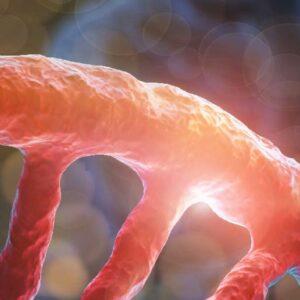Scientific Background
Colorectal cancer is the third most common type of cancer worldwide. In 2020, nearly 2 million people were diagnosed with colorectal cancer, and it is estimated that by 2040 the new cases will increase to about 3.2 million. There are different risk factors, both environmental and hereditary, that can cause the development of colorectal cancer. These include lack of physical activity and family history. Somatic, and hereditary germline mutations, such as mutations in the APC, BRAF, KRAS genes, and others, have been linked to colorectal cancer initiation and progression. Identifying these mutations can offer improved prognostic assessment, guide tailored therapies to each patient and help increase the chances of survival.
Microsatellite instability (MSI) immunotherapy biomarker has been linked to colorectal cancer. Indeed, many colorectal cancer patients display high MSI status, with studies linking high MSI status with good outcome and improved prognosis for patients with colorectal cancer. FDA/EMA immunotherapy treatments such as nivolumab and pembrolizumab are available for colorectal cancer patients with MSI high status.
How many genes are tested in this panel?
34 genes
Recommendations by professional bodies
ESMO recommends liquid biopsy testing for chemotherapy-naïve metastatic colorectal cancer patients when tissue biopsy is not feasible, when fast results are required, and re-evaluation is necessary (Pascual et al., 2022; ESMO recommendations).
References and more information:
• Information obtained by professional bodies such as WHO, Centers for Disease Control and Prevention.
• Pascual J, Attard G, Bidard FC, Curigliano G, De Mattos-Arruda L, Diehn M, Italiano A, Lindberg J, Merker JD, Montagut C, Normanno N, Pantel K, Pentheroudakis G, Popat S, Reis-Filho JS, Tie J, Seoane J, Tarazona N, Yoshino T, Turner NC. ESMO recommendations on the use of circulating tumour DNA assays for patients with cancer: a report from the ESMO Precision Medicine Working Group. Ann Oncol. 2022 Aug;33(8):750-768. doi: 10.1016/j.annonc.2022.05.520. Epub 2022 Jul 6. PMID: 35809752.
• Morgan E, Arnold M, Gini A, Lorenzoni V, Cabasag CJ, Laversanne M, Vignat J, Ferlay J, Murphy N, Bray F. Global burden of colorectal cancer in 2020 and 2040: incidence and mortality estimates from GLOBOCAN. Gut. 2023 Feb;72(2):338-344. doi: 10.1136/gutjnl-2022-327736. Epub 2022 Sep 8. PMID: 36604116.
• Gatalica Z, Vranic S, Xiu J, Swensen J, Reddy S. High microsatellite instability (MSI-H) colorectal carcinoma: a brief review of predictive biomarkers in the era of personalized medicine. Fam Cancer. 2016 Jul;15(3):405-12. doi: 10.1007/s10689-016-9884-6. PMID: 26875156; PMCID: PMC4901118.
• Gryfe R, Kim H, Hsieh ET, Aronson MD, Holowaty EJ, Bull SB, Redston M, Gallinger S. Tumor microsatellite instability and clinical outcome in young patients with colorectal cancer. N Engl J Med. 2000 Jan 13;342(2):69-77. doi: 10.1056/NEJM200001133420201. PMID: 10631274.
• Popat S, Hubner R, Houlston RS. Systematic review of microsatellite instability and colorectal cancer prognosis. J Clin Oncol. 2005 Jan 20;23(3):609-18. doi: 10.1200/JCO.2005.01.086. PMID: 15659508.





















